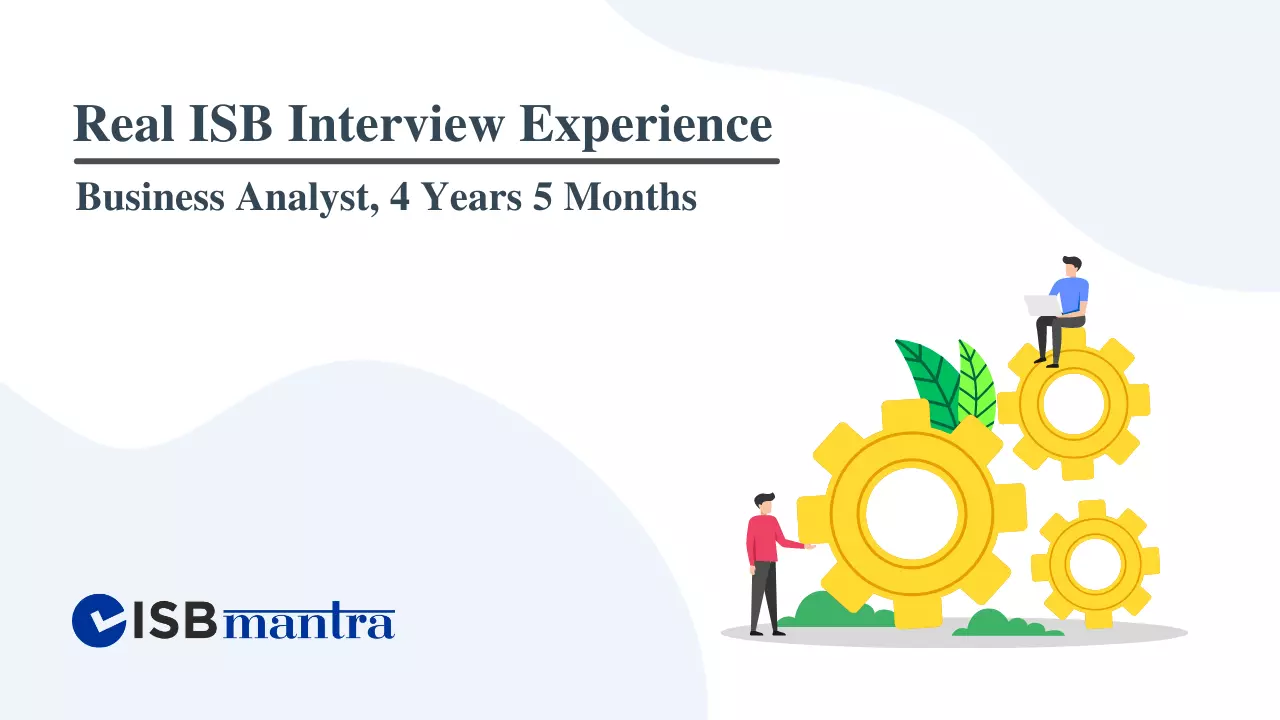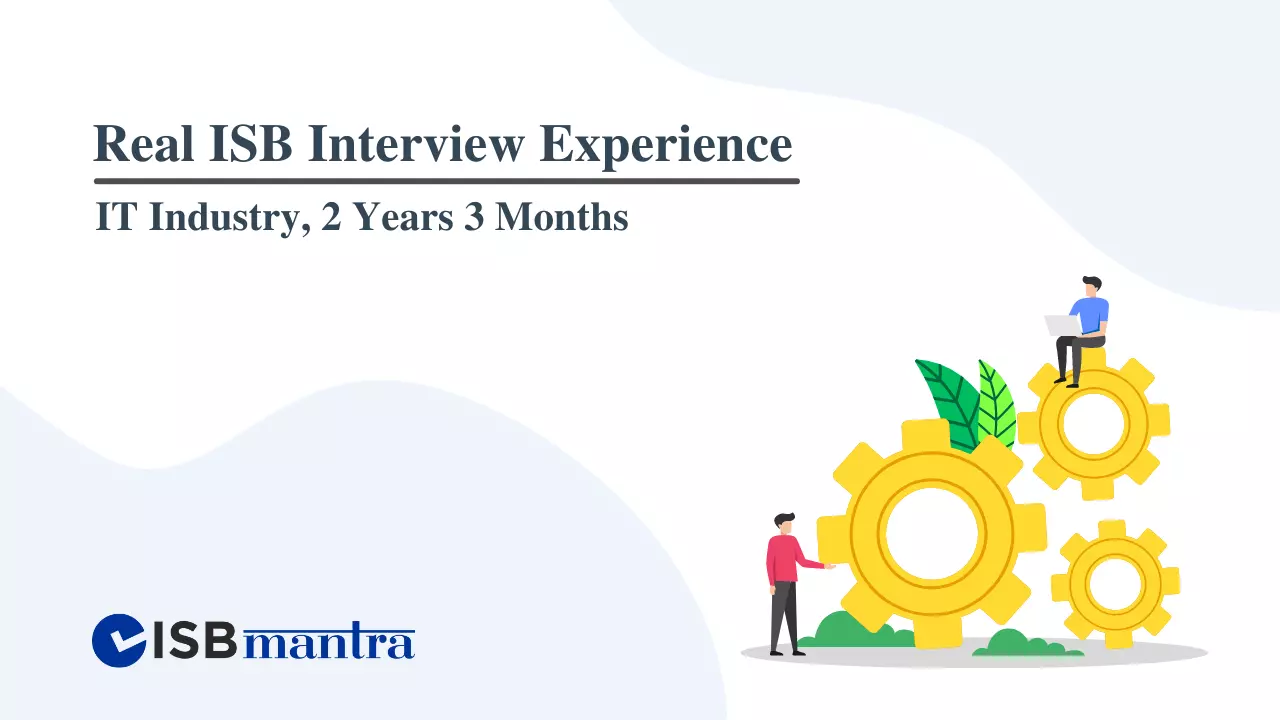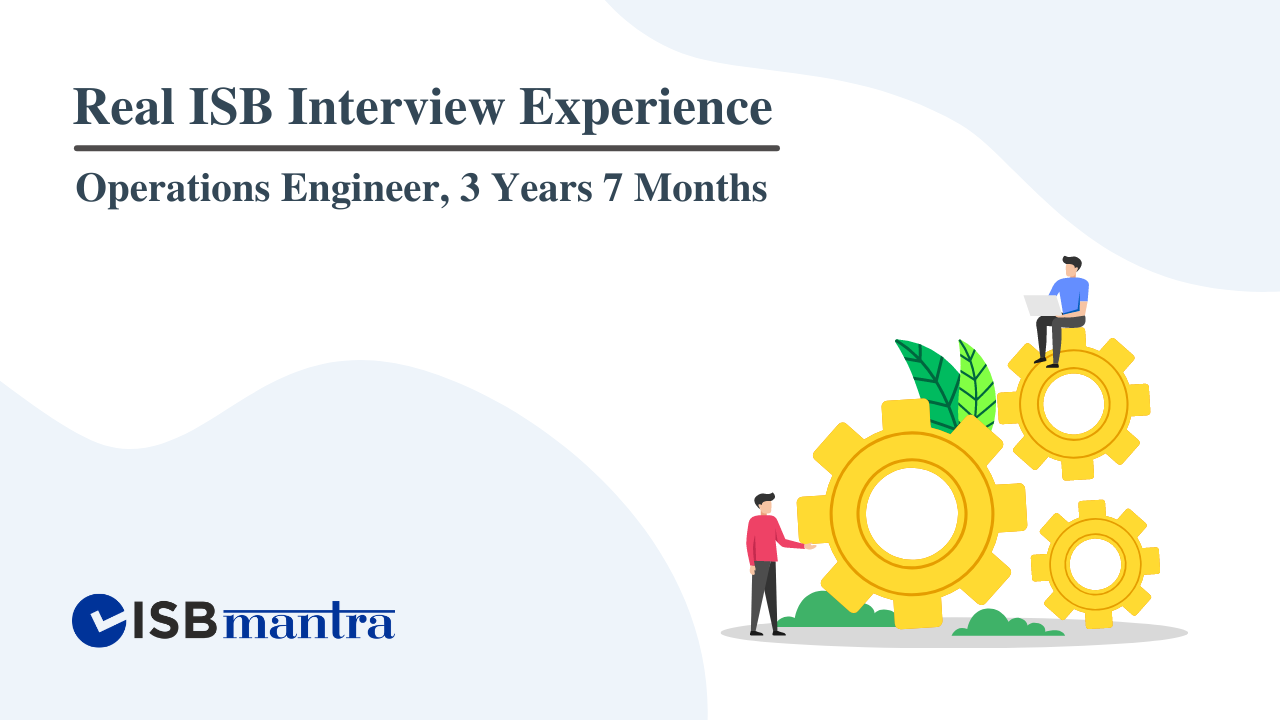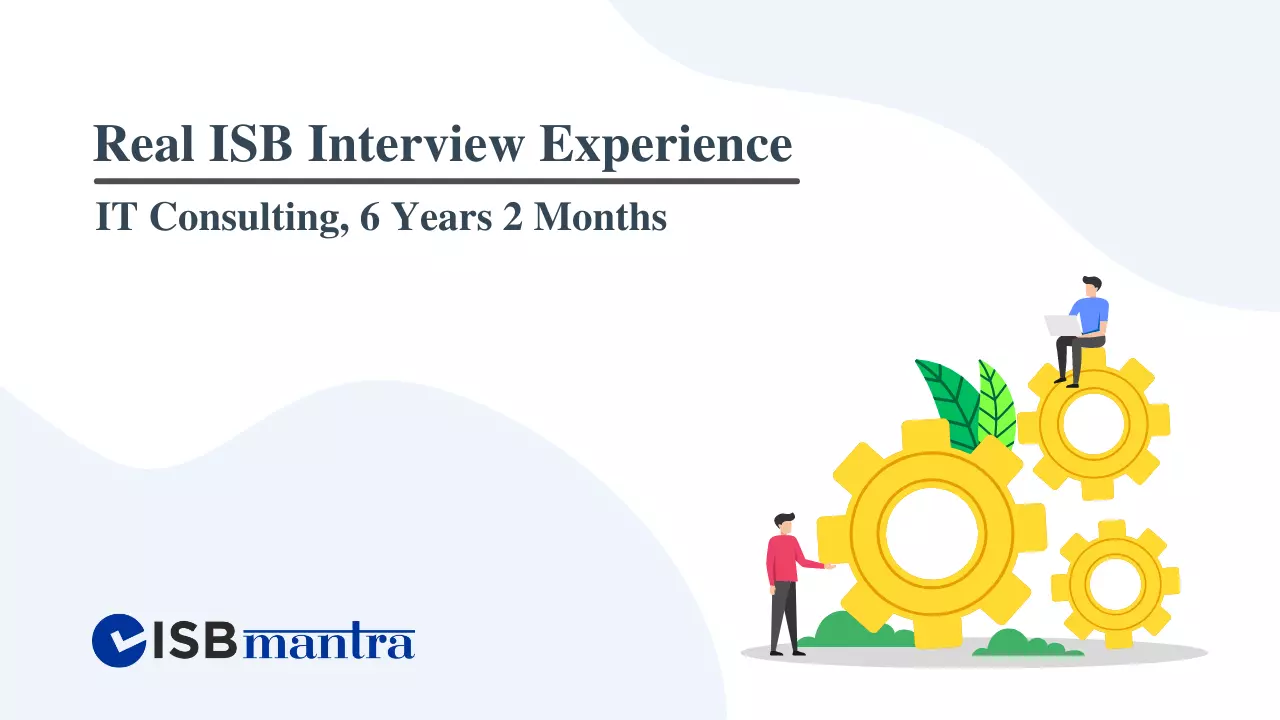This is the real ISB interview experience of a candidate who has 4 years 5 months of work experience as Business Analyst.

The ISB interview was conducted on February 18, 2018. As per the candidate’s information, there were two alumni in the interview panel. In his/her opinion, the interview was mainly focused on the work experience.
| Interview Date | 18th Feb, 2018 |
| Work Profile | Analytics/ 4.5 years of work experience |
| Re-Applicant? | Yes |
| Interviewers’ Profile | P1 – Alum P2 – Alum |
| Your Opinion on the approach of the interviewers and their key focus | Interviewers wanted to understand the depth of my work experience |
Qn: You are a re-applicant: what has changed in the last 1 year?
A: Talked about my internal movement within my company, change in profile & how it takes me closer to the problem solving for customers.
Follow-up Qn: Let’s understand this better: could you give me an example?
A: Talked about one of my projects, what all I have done and the entire thought process.
Follow-up Qn: Why did you need customer interaction when you had all the data and the ability to do all the analysis?
A: Talked about why quantitative analysis alone could not present the complete picture and hence needed qualitative data (talked about the business metrics to justify the same)
Follow-up Qn: (Interviewer not satisfied) Explained how he thought that the hypotheses we had could have been proven through data
A: Discussed with specific examples of how we were able to achieve more refined results when we looked beyond the data
Follow-up Qn: So is the problem solved now? Have you been able to achieve the end goal?
A: Yes, (quoted few business metrics to support the decision: used very few technical jargons)
Qn: You have written you can switch contexts easily. Could you give us 2-3 examples?
A: This was related to my switch from Retail to Pharma in Mu Sigma, and thereafter, to Makemytrip. Explained how I was able to make a smooth switch and adapted well to the different businesses.
Follow-up Qn: If you were to switch context to Lending industry post-MBA, how will you do that?
A: Talked about how my understanding about basics of payments through working in MMT and also understanding about the signals in lending (CRISIL score, current loans, earnings) could help me get a head start in this field
Qn: Asked about a pilot project I did at Mu Sigma
A: Talked about what the client wanted to achieve, how we structured the problem, what were the challenges and what we proposed/ handed over to the client.
Follow-up Qn: How did you decide on this model?
A: Talked about the concept of the product adoption curve and how we had used the same in our problem.
Follow-up Qn: How many people were involved in this project? What was your role?
A: 2 people, I was the senior analyst, took care of the client interaction & communication besides the analysis part
Qn: You are a data guy. Why the switch from Mu Sigma (which is a data analytics firm) to MMT which is highly dynamic and is very demanding and where the data models would go obsolete very soon?
A: Although Mu Sigma offered a wonderful opportunity to learn data analytics with a wide selection of projects and a highly dynamic environment, I was not part of the consumption of analytics. Immediately after project completion, we would move onto the next engagement. I moved to MMT to understand the consumption better and be a part of it. At MMT, since the beginning, I have been involved closely with the execution of projects (gave 2 examples of projects done with business teams). Thus, I have been able to better understand the consumption & also incorporate the feedback into my work.
Follow-up Qn: So you do get enough time to execute projects?
A: Yes, I do get
Qn: Your recommender has written that you are proactive in giving feedback. Do you follow this?
A: Yes, I do make sure that I put across my point of view and any feedback that I think is essential.
Follow-up Qn: But doesn’t it turn ugly when talking to seniors? How do you do this?
A: Yes, it is often not the easiest thing to do. However, I engage with my teammates/seniors in the conversation, discuss the pros and cons of any decision we are making and also provide reasons why I agree/ disagree with any argument/ decision made. Engaging with them is the best method to discuss disagreements.
Follow-up Qn: Is it easier to give feedback to juniors?
A: There is less anxiety when discussing with the juniors. However, the effort is similar.
Qn: One last question and then I am done: Describe how do you go about deploying any project?
A: Talked about the recommendation project- the problem statement, what I did, the testing method and how it was rolled out.
Follow-up Qn: So choosing between deploying vs accuracy, what do you choose?
A: Deploying. Described the reasoning behind the same- if it is better than the current live system then it should be deployed. Also, deployment helps collect data about how the new model is performing.
Follow-up Qn: But doesn’t it lead to a loss in long-term?
A: Yes, it may lead to loss where the model is not corrected for the errors on a continuous basis.
Qn: What is stopping you from going to companies like Flipkart in Product Manager roles? Why do you need an MBA?
A: There are 2 reasons why I need an MBA. First, in order to be a successful PM I need to understand the business functions better: how branding, marketing works, how does financial balance sheets work etc. Without understanding each of these it will be very difficult for me to design products that are present in e-commerce (through multiple brands), payment space. The second reason being to develop my leadership and negotiation skills, again a key requirement for being a successful PM.
Although each of these can be achieved on the job, the journey will take a longer time. The purpose of doing an MBA is to accelerate this learning and be closer to my goal of being a PM.
Qn: Apart from data what has changed in last 5 years?
A: First, I have developed an approach to problem solving. This has helped me in my professional life. Second, I have had the opportunity to interact with a lot of brilliant minds both at MMT, Mu Sigma & my professional network. This has shaped my thinking and made me more humble and patient.
Power packed interview packages
We can provide complete support during your ISB interview preparation through our power packed preparation module and personalized mock interviews.
Check this article – ISB interview, we have shared important interview tips and interview questions by A M Kannan, Ex ISB Director, Admissions and Financial Aid, Senior Mentor at ISBmantra.
Feel free to contact us for any further queries.



